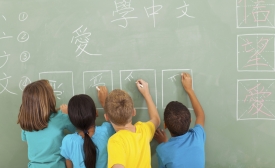politics
From Narendra Modi’s landslide victory in India to a one-sided and violent election in Bangladesh, from mass demonstrations in Islamabad to campaigning for an early presidential poll in Sri Lanka, 2014 was a year of fast and furious politics for the fifth of the world’s population who live in south Asia.

Falk Hartig gives the rundown on the 9th Annual Confucius Institute Conference from Xiamen.
Talk about America’s decline is usually wrong. But how else would you describe a country that, in a world of exploding tensions, is unable to confirm dozens of ambassadors to foreign posts because of partisan squabbling? Even by Washington standards, the Senate Republicans have hit a new low for hypocrisy. They denounce President Obama’s inaction on foreign policy — and simultaneously refuse to confirm his nominees for U.S.
In the wake of Russia’s annexation of Ukraine’s Crimea region, public concern about Russia has increased, according to a new Pew Research Center survey. Even so, when given the choice, more describe Russia as a serious problem but not an adversary (43%) than say it represents an adversary (26%). Just 22% say Russia is not much of a problem.
These are exciting days for those of us who teach and practice public diplomacy. Aimed at establishing mutually beneficial relationships between governments (as well as non-governmental organizations) and citizens of foreign nations, our field is viewed as transformative by some, while somewhat idealistic by others.
The Saudi royal decree against terrorism in February 2014, and later the Interior Ministry declaration in March banning several Islamist groups, can be considered as the general framework of the new security doctrine that will govern the behavior of the Saudi government in the coming period.
Vladimir Putin appears well on his way to reclaiming the Crimea for Russia, restoring the peninsula to a status forfeited by Nikita Khrushchev’s Soviet Union in 1954. But this territorial achievement may provide only temporary distraction for Russia’s 140 million people who have seen their quality of life deteriorate dramatically since Putin took power in 1999.
Public diplomacy matters, but it is no substitute for policy. As First Lady Michelle Obama prepares to travel to China, she should consider weaving some policy into what appears to be almost entirely a week-long public diplomacy push. With her mother and two daughters in tow, the first lady will be visiting educational institutions and historical sites and discussing education in the United States and China.







